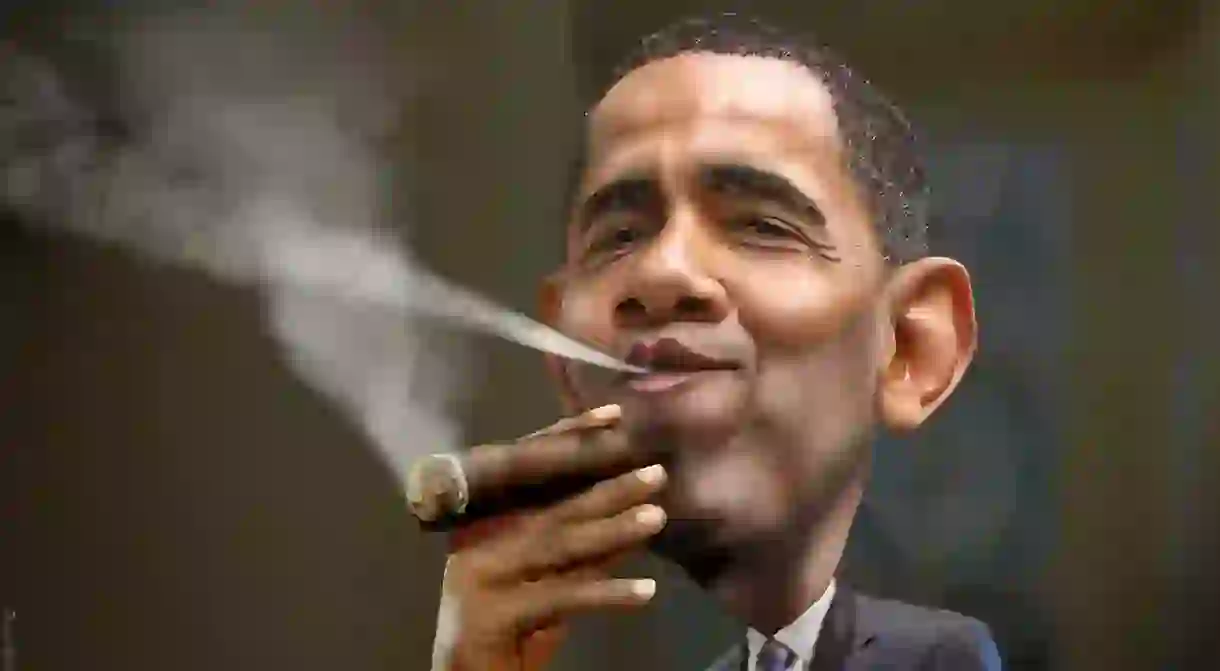Americans Can Now Bring Cuban Cigars and Rum Into the U.S.

Soon, the classic movie scene in which American politicians share Cuban cigars as a forbidden fruit will be a thing of the past. The U.S. government has eased the strict regulations that for over 50 years have prohibited American residents from buying Cuban products. Now it’s possible to buy Cubans cigars and rum and take them back to the U.S., no questions asked.
Like most things illegal, an aura of desire surrounded Cuban cigars for a long time. In the early 1960s, President Kennedy imposed an embargo on Cuba, which for decades restricted trade and travel between the two countries.
Knowing that he was about to pass a trade embargo in 1962, Kennedy asked his press secretary Pierre Salinger to get 1,200 Cuban cigars for him before the official announcement. According to Salinger’s account, he managed to accomplish the mission, bringing back that amount of the president’s favorite brand and size of Cuban cigars, H. Upmann Petits.
Successive measures introduced by the U.S. government have considerably changed the limitations since it announced in 2014 that diplomatic relations would be re-established with Cuba.
First, Americans were authorized to travel without having to apply for a permit, as long as the trip fell into one of 12 approved categories of travel. For a while, travelers were only allowed to bring back 400 dollars worth of souvenirs of any kind, including a cap of only 100 dollars in cigars and rum—which was a big limitation since a single box of one of the main brands can cost more than that.
After a while, the government dropped the 100-dollar limit, and now it is possible to import almost as many cigars and bottles of rum as you want.

According to dispositions of the U.S. Department of the Treasury, American travelers can buy and consume cigars while in Cuba, as well as import them into the U.S., provided that they are for personal consumption. Under OFAC’s definition of “personal use,” it is also possible to give cigars to other people as gifts, but not charge for them in any way. Selling imported cigars in U.S. territory is still illegal—the same disposition applies to Cuban cigars bought in third countries.
Some customs controls and limits still apply though, both on the Cuban side upon departure, and at the American border upon re-entrance.
Cuban authorities will check for invoices if you attempt to export more than 50 cigars, as long as the amount is not worth more than $5,000, while American authorities will give you a free pass for anything under 100 cigars or $800. Beyond those limits, you will have to pay taxes to import them to the U.S., and this can only be done once every 31 or more days.
The Cuban Customs website only makes reference to a limit of three bottles of rum in the Spanish version of the site, but there’s no mention of this on the English website.

Overall, this is great news for cigar lovers in the United States, who can now have access to products bought directly from the source, with all the benefits of freshness, authenticity and better prices that this entails.
Traveling to Cuba is also an opportunity to have a closer look at the local industry and its secrets, including the beautiful tobacco plantations in Pinar del Rio; the expert rollers at cigar factories; and a world-class festival like the Festival del Habano. This event is an international cigar fair that brings together experts and aficionados from over 50 countries every year in Havana.














